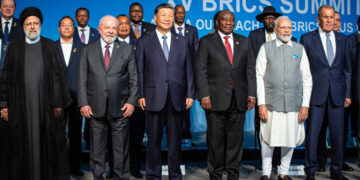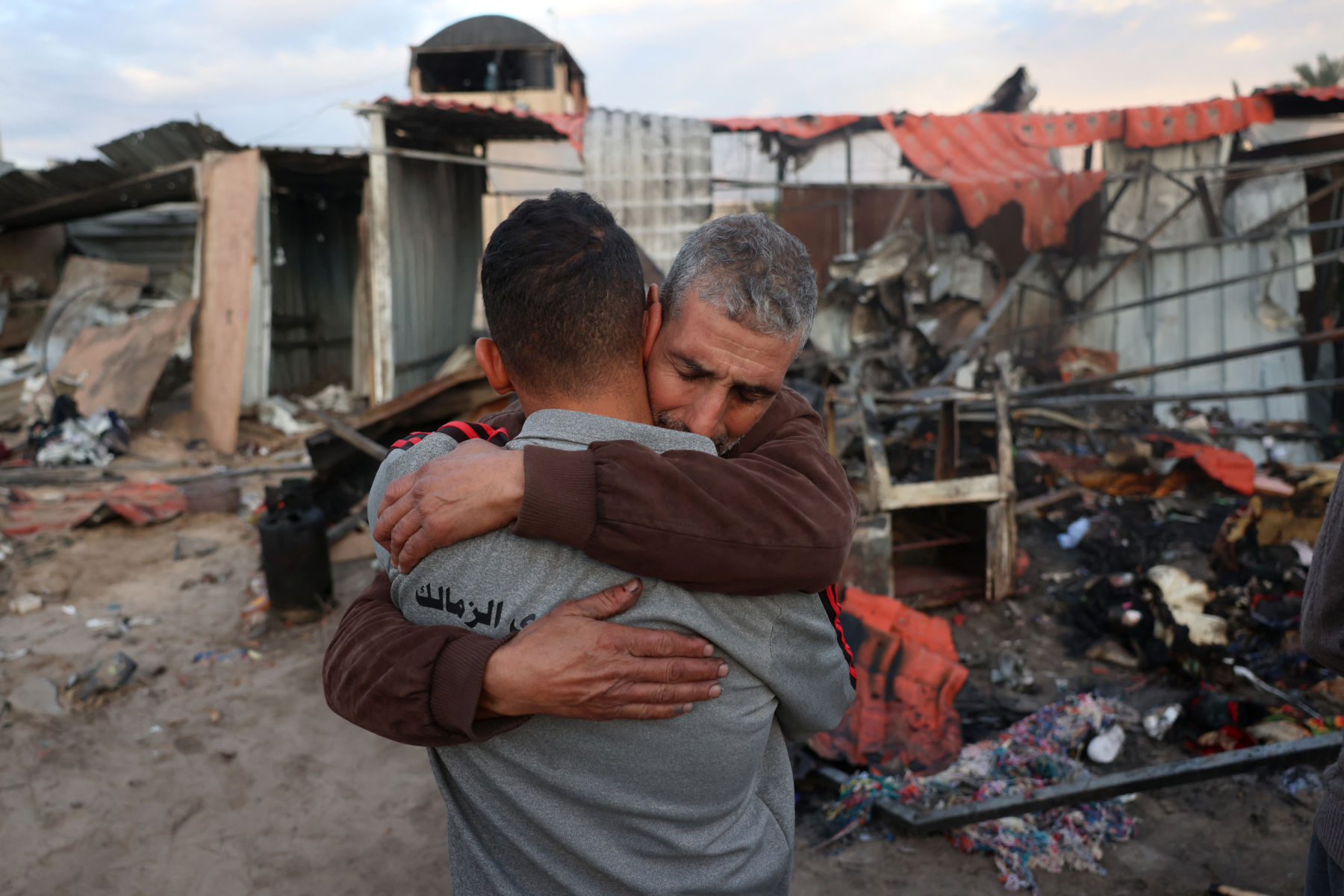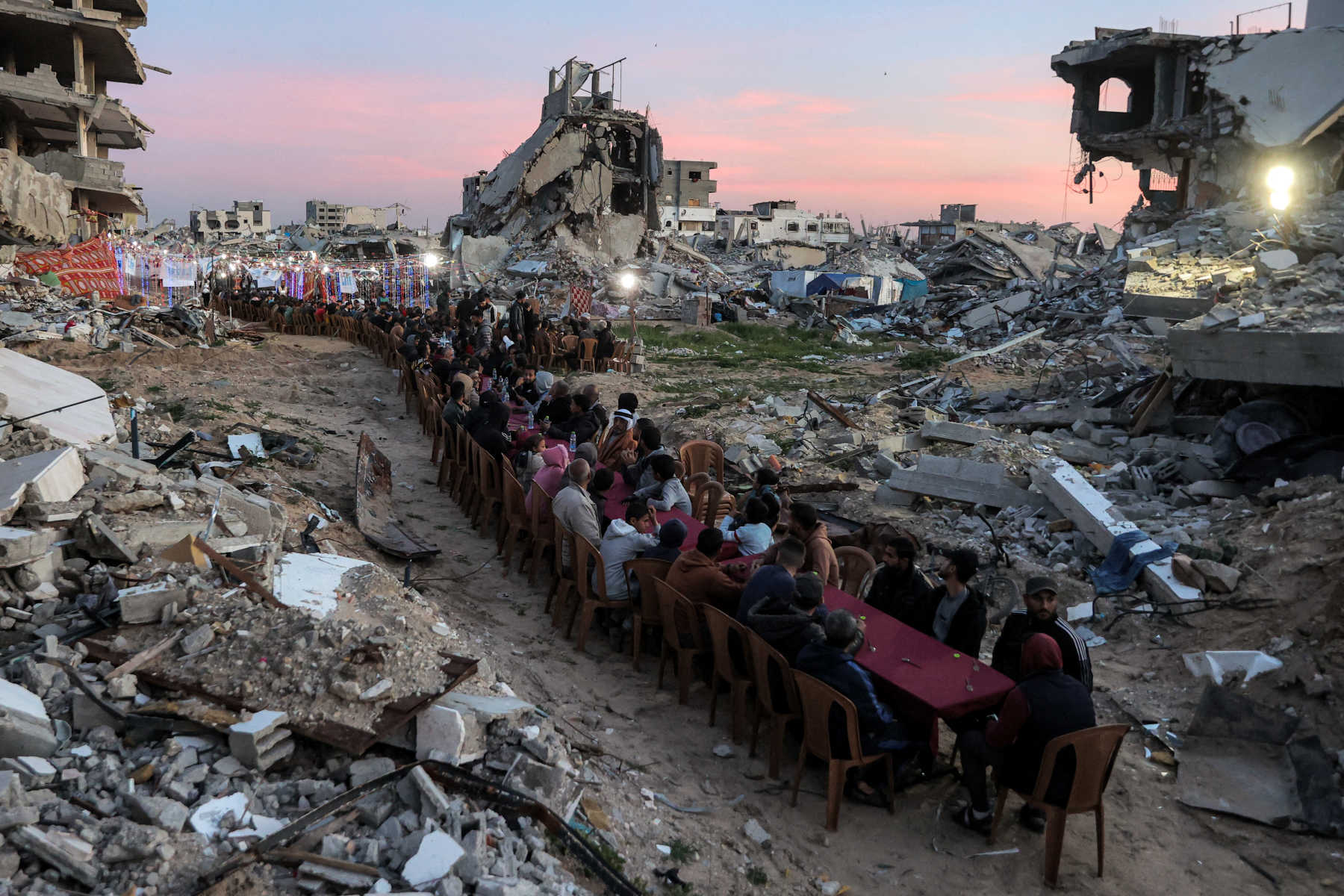عربي
SUMMARY
Described as a handsome prince with charisma who speaks multiple languages and obtained degrees from the Sorbonne and Oxford University, Prince Salman, 38, known as Ghazalan, has been in detention since January 2018, together with his father, Prince Abdulaziz bin Salman bin Muhammed, as part of a purge of royal family rivals by Crown Prince Mohammed bin Salman (MBS). On the day of Prince Salman's arrest, January 4, 2018, security officers led by Saud al-Qahtani, a former close advisor to the Crown Prince, beat Prince Salman until he fell unconscious according to a source close to the family. They transferred him to the Ritz Carlton Hotel, supposedly to be treated for his injuries, and transferred him to al-Haer Prison in mid January 2018. They arrested his father, Prince Abdulaziz, on January 5, 2018.
Prince Salman was one of 381 individuals, including senior officials, arrested by MBS as part of his unprecedented steps to consolidate powers and sideline actual or perceived rivals, following his appointment as crown prince on July 21, 2017. MBS has arrested numerous royals considered to have influence, including Mutib bin Abdullah, Turki bin Abdullah, al-Waleed bin Tala, and others. Saudi security officers involved in the arrests said they suspected Prince Salman and his father of suspicious contacts with foreign officials, according to an eyewitness. But the Saudi government has not provided any evidence, has not charged either man with any crime and has not interrogated Prince Salman or Prince Abdulaziz even once. The Saudi authorities have denied them access to a lawyer.
In November 2020, Saudi officials disappeared Prince Salman and Prince Abdulaziz, transferring them to an unknown location. Following a DAWN campaign and pressure from Congress, Saudi authorities finally allowed a family visit to Prince Salman during the third week of October 2021, and to Prince Abdulaziz shortly thereafter, according to a confidential DAWN source.
METHODOLOGY
DAWN researchers interviewed sources close to Prince Salman and obtained documents and other information from published sources that we consider to be reliable, as indicated below. Interviews include the following:
Source H: DAWN interviewed this source on October 28-31, November 5-6, November 13-17, and November 22, 2020. In 2021, DAWN interviewed the source on February 8-12, February 20-26, and March 31. This source is a close associate of Prince Salman and worked for him and his family for more than a decade. This source drove with Prince Salman to the Governor's Palace on January 4, 2018, and witnessed the raid at the home of Prince Abdulaziz on January 5, 2018. Source H also shared legal documents pertinent to the case.
Source B: DAWN interviewed the source on October 28 and November 26, 2020. This source is a friend of Prince Salman who attended events and traveled with him prior to his arrest.
We do not disclose the identity of these sources to protect their security. We reference them below as "Source H" and "Source B."
PERSONAL BACKGROUND
Born on November 1, 1982 in Riyadh, Prince Salman is a member of the Saudi Royal family. His friends call him "Salman Ghazalan," a play on the word "gazelle," which connotes good looks in Arab culture. His father is Prince Abdulaziz bin Salman bin Mohammad Al Saud, and his mother is Princess Nouf bint Abdullah bin Abulrahman, a niece of King Abdulaziz and a first cousin of the current Saudi king, Salman.
Prince Salman was raised in Riyadh and married Princess Oraib bint Abdullah Al Saud, a daughter of the former King Abdullah in 2012. Many Saudi royals, including now-King Salman, attended the wedding ceremony. He has a daughter named Nouf.
Prince Salman received his early education at the Najd school in Riyadh and graduated from Law School at King Saud University in Riyadh. He completed his postgraduate studies at Oxford University and obtained a Master's degree in International Law from Saint Clements University. Later, he obtained his PhD in International Law from Sorbonne University. His PhD dissertation was a comparative study of the legal challenges of corporate law in Saudi Arabia. His native language is Arabic, and he speaks fluent English and French and basic Italian.
PROFESSIONAL BACKGROUND
According to Source H, the late King Abdullah and current King Salman offered Prince Salman positions in government, but he declined. He told Source H that he thought that he could better serve the public as a citizen rather than a public official.
Prince Salman established Buonasera Ltd, a private aviation company, in 2015 and served as its CEO. The business shut down following his arrest. He also founded a philanthropic project, "the Visionary Movers Club," a platform that aims to bring young leaders of the world together to discuss creative ideas, build networks, and promote meaningful cultural exchange. He met with political leaders around the world and received the Presidential Gold Medal of Italy and the Highest Medal of Germany, awarded to the world's most influential leaders in culture, education and philanthropy.
TIME AND CIRCUMSTANCES OF ARREST
Even before MBS became Crown Prince, there were early indications that he perceived Prince Salman's ties abroad as a threat. According to Prince Salman's family, as relayed to Source H, on October 16, 2016, while MBS was deputy crown prince, Prince Salman met with U.S. Congressman Adam Schiff, along with Democratic party donor Andy Khawaja, in Beverly Hills, California. The same day, according to Sources H and B, Prince Salman's family received a call from Khalid bin Abdulrahman al-Issa, then-Chief of the Saudi Royal Court, ordering him to return to the Kingdom. Prince Salman complied, thinking his return would allow him to clear the air about his meeting with Congressman Schiff and to persuade members of the Royal Court that the meeting did not constitute political intervention, according to Source H and the family. Source H said the prince limited his trips abroad after this incident.
Once he became Crown Prince on July 21, 2017, MBS took unprecedented steps to consolidate power and sideline actual and perceived rivals. These moves started with removing the former crown prince, Muhammed bin Nayef, from the Ministry of Interior and stripping him of his State Security powers. MBS reorganized the state's security agency into a new governmental agency that reported to him, the State Security Presidency. MBS also removed another rival, Prince Mutaib bin Abdullah, from the National Guard, a position his branch of the royal family had controlled for decades. Prior to MBS's rise to power, the Saudi royal family had operated through an unwritten, internal power-sharing system, in which different branches of the family were allowed to control various state functions.
MBS embarked on two major political purges, first of a large number of wealthy individuals in November 2017, from whom Saudi officials demanded money to secure their release, and then, in January 2018, a purge of perceived royal rivals, including Prince Salman and his father, Prince Abdulaziz.
On November 4, 2017, MBS embarked on an "anti-corruption" purge targeting more than 200 Saudi tycoons, including powerful princes such as the once-powerful Prince Turki bin Abdullah, a son of the late King Abdullah and former governor of Riyadh. When the purge of wealthy individuals accused of corruption concluded in 2019, Saudi officials, acting under the supervision of the Anti-Corruption Committee headed by MBS, had arrested, physically abused or otherwise demanded money from a total of 381 individuals, including at least 11 princes. Saudi authorities released them in exchange for "financial settlements." The Royal Court said it recovered between $100 and $107 billion in the purge. The authorities did not charge these individuals with crimes nor file suit in civil court for financial remedies.
According to DAWN's sources, on January 4, 2018, after midnight, an official from the Royal Court called the home that Prince Salman shared with his father, Prince Abdulaziz, in Riyadh, while Prince Salman was asleep. The official asked his father, Prince Abdulaziz, to tell Prince Salman to visit the palace of the Governor of Riyadh (Qasr al-Hukm) as soon as possible. Later that morning, Prince Salman went to the Palace of the Governor of Riyadh. When he arrived, he saw that approximately twenty or thirty members of the Al Saud royal family had also been summoned for a "meeting" with the Governor, but neither the Governor nor any other official was there to receive them. They prayed al-Fajar, the Muslim pre-dawn prayer, and waited for the meeting that never took place.
After a few hours, armed men from a special force created by MBS, called the "al-Saif al-Ajrab brigade," which means "the Naked Sword Brigade," led by Saud al-Qahtani, then the senior advisor to MBS, arrived. The armed men began arresting the members of the royal family, who protested their treatment. Prince Salman asked the men what prompted the invitation and the arrests. In response, armed members of the brigade, at the command of al-Qahtani, beat him in front of the others, until he fell to the ground, unconscious, according to his family, as relayed to Source H. At that time, Source H was waiting outside.
Saudi attorney general Saud al-Mojeb described the assembly of royals that day at the Riyadh Governor's Palace as a "sit-in" of royals to demand that the state pay their utility bills. Al-Mojeb added that the princes refused to leave, and so security officials arrested them. However, the family of Prince Salman, according to Source H, denied al-Mojeb's account, arguing against the likelihood that wealthy princes would care about small amounts of utility bills and noting that the Royal Court had summoned Prince Salman and the others.
Al-Qahtani, personally supervised the arrests and beatings, according to the family's report to Source H. After Prince Salman fell unconscious, members of al-Saif al-Ajrab brigade removed him, together with eleven other princes, and took Prince Salman to the Ritz Carlton hotel in Riyadh, where they had set up a hospital for detainees until his wounds from the beatings healed. Saudi authorities arrested Prince Abdulaziz one day after his son's arrest (see Impact on Family).
According to Source H's information, State Security officials from the Presidency of State Security held Prince Salman at the Ritz Carlton Hotel for almost two weeks before transferring him to al-Haer Prison by mid-January 2018. Prince Salman spent more than a year there. According to Source H, during his first eight months in al-Haer Prison, during which Colonel Saad al-Salloum was the warden, prison officials held Prince Salman incommunicado, with no phone calls or visits. Around March 2019, State Security officials transferred him to a private villa in Riyadh, inside King Saud al-Dhiyafah Palace, which is a royal guest palace.
In November 2020, State Security officials transferred Prince Salman to an unknown location. He was not heard from until October 2021 when he was allowed a family visit.
TRIAL AND LEGAL PROCEEDINGS
Despite holding them in detention for well over three years, Saudi authorities have not charged Prince Salman or his father Prince Abdulaziz with any crime. Both were denied a lawyer, and neither has ever been interrogated, according to Source H.
DETENTION CONDITIONS
On January 4, 2018, members of al-Saif al-Ajrab brigade, led by al-Qahtani, badly beat Prince Salman. Security forces later transferred Prince Salman to the Ritz Carlton Hotel where he was treated for his injuries. He remained there for almost two weeks until State Security officers transferred him to al-Haer Prison in mid January 2018 and later to al-Dhiyafah Palace.
According to his family, as H reported, after officials moved Prince Salman to al-Dhiyafah Palace on or around March 2019, Prince Salman was able to make weekly calls to his family. A few months later, along with his father, Prince Abdulaziz, he was allowed to receive family visits once a week until the beginning of 2020, coinciding with the COVID-19 pandemic. Visits were stopped at the beginning of 2020, but calls continued until the third week of November 2020.
In November 2020, State Security officials transferred Prince Salman to an unknown location and put an end to the phone calls. He was not heard from until October 2021, when he was allowed a family visit.
IMPACT ON PROFESSIONAL LIFE
According to Source H, Prince Salman could not manage his private aviation company during his imprisonment and therefore was forced to close it down. His philanthropic and community projects also shut down, his family had to sell his properties, and his employees left his employ.
Saudi officials disappeared both Prince Abdulaziz and Prince Salman at the same time. Soon after a campaign by DAWN and pressure from Congress, Saudi authorities finally allowed Prince Salman a family visit in late October 2021, and Prince Abdulaziz a visit shortly thereafter.
IMPACT ON FAMILY
According to Source H, on January 4, 2018, after security forces arrested Prince Salman at the Palace of Governor of Riyadh, his father, Prince Abdulaziz, went to the palace and witnessed the verbal argument between his son and members of the al-Saif al-Ajrab Brigade, as well as the beating of his son. Prince Abdulaziz then returned to his palace and tried to contact friends in Paris to request assistance.
One day later, on January 5, 2018, at about 8:30 AM, about 100-150 armed members of the al-Saif al-Ajrab Brigade, led by al-Qahtani, raided his palace and arrested him. During the raid, the armed men broke the palace's video cameras, and the forces arresting Prince Abdulaziz asked him why he was "contacting foreign entities," according to Source H who witnessed the arrest.
For more than a year, from mid-January 2018 to March 2019, State Security officers held Prince Salman's father, Prince Abdulaziz, in al-Haer Prison. Like his son, during the first eight months, Prince Abdulaziz was held incommunicado, with no phone calls or visits. After approximately March 2019, State Security officials transferred them to a royal guest house at King Saud al-Dhiyafah Palace, according to Source H.
According to the family, as reported to Source H, while at al-Dhiyafah Palace, Prince Abdulaziz, like his son, was able to make weekly calls to the family. A few months later, detention authorities allowed him to receive weekly family visits until the beginning of 2020, coinciding with the COVID-19 pandemic. Then visits ended, but phone calls continued until the third week of November 2020.
Saudi officials disappeared both Prince Abdulaziz and Prince Salman at the same time. They allowed Prince Salman a family visit in October 2021.
VIOLATIONS OF RIGHTS
The detention and current disappearance of Prince Salman and Prince Abdulaziz violate various provisions of domestic and international law. Article 9 of the Universal Declaration of Human Rights (the UDHR) establishes that "no one shall be subjected to arbitrary arrest, detention or exile." Other human rights documents build on the scope of this core right, including the Body of Principles for the Protection of All Persons under Any Form of Detention or Imprisonment (the Body of Principles) and the Arab Charter on Human Rights. Under these instruments, the actions of Saudi Arabia in imprisoning Prince Salman and Prince Abdulaziz constitute arbitrary detention, and thus a grave breach of their human rights.
The United Nations Working Group on Arbitrary Detention (Working Group) hears claims from individuals who have been deprived of their liberty arbitrarily or inconsistently with international human rights law. The Working Group has found that detention is "arbitrary" when it fits into any one of the following categories:
- When it is clearly impossible to invoke any legal basis justifying the deprivation of liberty.
- When the deprivation of liberty results from the deprivation of the exercise of the rights and freedoms granted by certain other rights in the Declaration or the International Covenant on Civil and Political Rights, including the right to freedom of speech.
- When the right to a fair trial has been so gravely breached that it gives the deprivation of liberty an arbitrary character.
- When asylum seekers, immigrants, and refugees are subjected to prolonged administrative custody without the possibility of administrative or judicial review or remedy.
- When the deprivation of liberty constitutes a violation of international law on the grounds of discrimination, including discrimination as to political opinion, that aims towards or can result in the ignoring of equality of human beings.
The Saudi authorities have breached Article 9 of the UDHR in conformity with Categories I and III, in addition to numerous other breaches of the UDHR.
The detention of Prince Salman and Prince Abdulaziz also violates the requirements of Saudi Arabia's Law of Criminal Procedure, which prohibits authorities from detaining suspects for more than six months prior to charging them with a crime.
Arbitrary Deprivation of Liberty
The Saudi government's actions in detaining Prince Salman on January 4, 2018, and his father Prince Abdulaziz on January 5, 2018, had no legal basis under international human rights law. The authorities did not provide them with a warrant, nor did they promptly inform them of the reasons for their arrest and the charges they would face. The government held them incommunicado between January 5, 2018 and approximately mid August, 2018, without access to their family members or a lawyer.
They have been subject to enforced disappearance in an unknown location since November 2020. The practice of enforced disappearances is a particularly aggravated form of arbitrary detention (see Opinion No.82/2018, para. 28). Their pre-trial detention did not rely on an individualized consideration of the relative risk they posed, and the authorities never considered alternatives to their imprisonment. As a consequence, Saudi Arabia's treatment of Prince Salman and Prince Abdulaziz violates Article 9 of the Universal Declaration (see Opinion No. 33/2020, para. 76). Further, by refusing to allow Prince Salman and his Prince Abdulaziz to bring forth proceedings challenging the lawfulness of their arrest, Saudi Arabia also contravened principles 11, 32 and 37 of the Body of Principles, which establish the necessity of judicial safeguards in cases of liberty deprivation.
The Right to Humane Treatment and the Prohibition of Torture
Finally, and most gravely, the family and associates of Prince Salman have made credible allegations of torture during Prince Salman's arrest, including beatings and physical abuse. Article 5 of the Universal Declaration and Articles 2 and 16(1) of the Convention against Torture and Other Cruel, Inhuman or Degrading Treatment or Punishment prohibit the practice of torture absolutely.
Conclusion
In its treatment of Prince Salman and Prince Abdulaziz, the Saudi government has demonstrated manifest disregard for international human rights law. Further investigations, including by the Special Rapporteur on the arbitrary detentions and the Special Rapporteur on torture, will hopefully determine the extent of the governments' breaches. Nevertheless, it has been clear from the outset that Prince Salman and Prince Abdulaziz have suffered an unconscionable violation of their rights under the UDHR.
OFFICIALS INVOLVED IN UNLAWFUL DETENTION AND TORTURE
1- Saud al-Qahtani, former senior adviser to the Crown Prince
Al-Qahtani was a close advisor to MBS and a fierce loyalist. He once wrote on his suspended Twitter account, "I am an employee and faithful implementer of the orders of my lord the King and his Highness the faithful Crown Prince."
According to the family and Source H, al-Qahtani supervised the arrests and physical abuse of Prince Salman at the Riyadh Governor's palace. He also supervised the arrest and abuse of Prince Abdulaziz during his arrest from his palace in Riyadh. During the raid, forces led by al-Qahtani broke the palace's cameras. They asked Prince Abdulaziz why he had contacted "foreign entities," according to Source H, who was present at both events. That question indicates the lack of legal basis for his arrest, as the forces led by al-Qahtani asked no questions about actual criminal activity, and no charges have been brought.
2- Attorney General Saud al-Mojeb
As attorney general, al-Mojeb bears overall responsibility for prosecuting criminal cases and investigating claims of torture and abuse. Al-Mojeb heads the public prosecution. In justifying the arrests of Prince Salman and other royals at the Governor's Palace in Riyadh, Saudi attorney General said, "Despite being informed that their demands are not lawful, the 11 princes refused to leave the area, disrupting public peace and order. Members of the security services stepped in to restore order and the princes were arrested." The statement claimed that the arrests were over a "sit-in at a royal palace in Riyadh to demand the state continue to pay their electricity and water bills." That description does not match the facts relayed by witnesses who spoke to DAWN, including the fact that Saudi officials summoned Prince Salman to the Governor's Palace.
Al-Mojeb, at the very least, was aware of the circumstances surrounding the arrest and detention of the two princes but failed to intervene in violation of their rights, failed to charge them with a crime or release them, failed to inform their family of their whereabouts, and failed to investigate the physical abuse of Prince Salman by security forces led by al-Qahtani. He continues to preside over the forced disappearance of both princes.
3-Colonel Saad al-Salloum, Warden of General Intelligence Directorate Prison in al-Haer
Al-Salloum was the warden of al-Haer prison, which is under the authority of the State Security Presidency , from at least the beginning of 2018 until September 2020. As such, he was responsible for the treatment of prisoners held there during that time.
During his time as warden, from mid January to September 2018, prison officials held Prince Salman and his father, Prince Abdulaziz, incommunicado in al-Haer Prison without justification.
INTERNATIONAL REACTIONS
In November 2018, reports indicated that the French government and French President Emmanuel Macron made efforts to release Prince Salman.
In February 2020, a delegation of the European Union visited Saudi Arabia and called for the release of unjustly detained royals, including Prince Salman and Prince Abdulaziz. Marc Tarabella, vice chairman of the European Parliament's delegation for relations with the Arab Peninsula, called on the European Parliament to pressure the Saudi government to release Prince Salman. In his letter to the parliament, he referenced its appeal to the Saudi government for information about the Prince and his condition, but to no avail. Tarabella said that the release of the Prince would help improve the relationship between Europe and Saudi Arabia.
In May 2020, Robert Stryk, an American lobbyist, signed a $2 million contract with an associate of Prince Salman to advocate for his release. According to DW, the pressure to release the Princes has the support of the U.S., U.K. and the European Union governments.
In August 2020, the Geneva-based MENA Rights Group and the London-based ALQST filed a complaint at the United Nations' Working Group on Arbitrary Detention in Geneva over the arrest and mistreatment of the princes.
In October 2020, the European Union passed a resolution to downgrade the delegation to the G-20 in Saudi Arabia, citing multiple human rights abuses, including the detention of Prince Salman.
On February 4, 2021, European Parliamentarian, Marc Tarabella sent a letter to Congressman Schiff to coordinate on pressuring the Saudi government to release Prince Salman and Prince Abdulaziz. DAWN obtained a copy of the letter. "This is the time to join our forces and offer political and diplomatic solutions in order to bring justice by putting an end to the arbitrary detention of Salman bin Abdulaziz bin Salman Al Saud and his father," Tarabella said.
On March 30, 2021, the U.S. State Department Annual Human Rights Report referenced the detentions of the princes and said that "the prince and his father have never been interrogated or charged since their detention began more than two and a half years ago."
Photo Credits: illustration by Marjan Farsad.




































